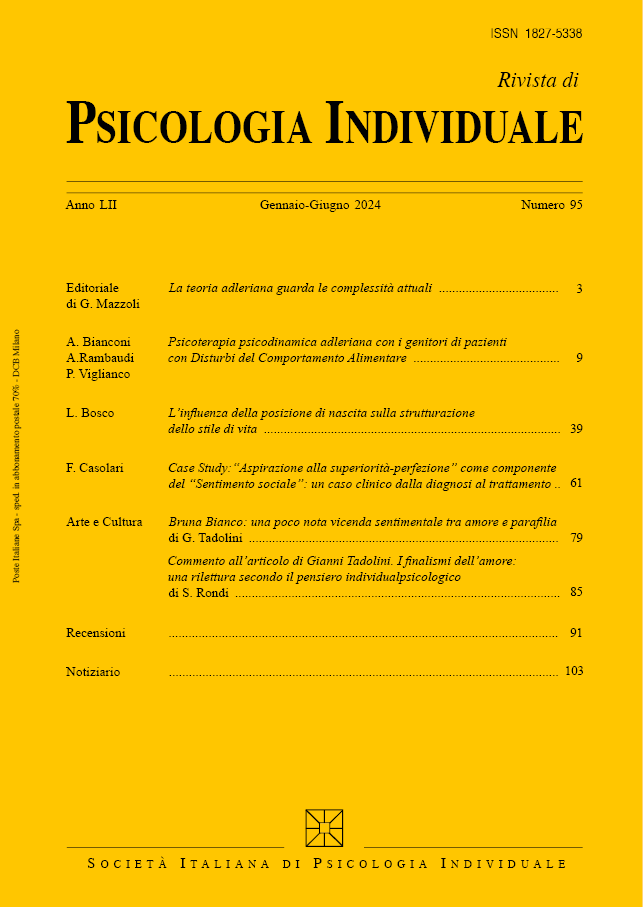DEMORALIZATION OF CANCER PATIENT IN THE TERMINAL PHASE OF THE ILLNESS
Keywords:
psychoncology, demoralization, terminal patient, dying patientAbstract
The emergence of the cancer, in people’s life, gets involved many sides of their existence. Opting for a biopsychosocial approach, it is possible inquiring about the hypothetical reasons, the different effects of the illness, considering also the psychological needs of the cancer patient. This experimental study has the aim to investigate the construct of demoralization: this is one of the most recurring emotional answer that the cancer patient shows during the end stage of the illness. The main aim is to examine the relationship between the demoralization and the other psychological cancer symptoms: anxiety and depression. These two constructs have been analyzed in connection with the five dimensions of the demoralization: loss of meaning and purpose, dysphoria, disheartenment, helplessness and sense of failure. Furthermore, being a context of palliative care, it has been evaluate the possible presence of pain and how much this could have affected the demoralization. The sample, composed by 47 cancer patients with heterogeneous cancer diagnosis and a life expectancy of no more than four months, has been recruited in the Hospice “Vittorio Valletta” in Turin. The following tests were administered: Visual Analog Scale (VAS), Hospital Anxiety and Depression Scale (HADS), Demoralization Scale (DS), and also clinical and socio-demographic data.
The results, according to other studies in literature, have confirmed the reciprocal influence between the demoralization and the anxious-depressive symptoms. The absence of correlation between pain and demoralization is an important result to observe, even if not statistically significant in this study. Results provide further evidence of importance to not underestimate how the demoralization of the terminal cancer patient is associated with physical, psychological and existential distress. Thus, we need to remember one of the aim of palliative care, and also of the psycho-oncology: it’s important to ensure, to the terminal patients, a good quality of life, free from unnecessary pain, and so, a dignitous and “good death”






